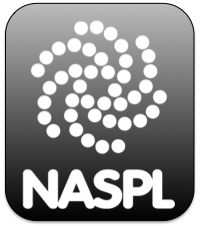NSI Development Process 1.0 Conformance Requirements
LABEL
QUALITY ASSURANCE
When the NASPL Certification/Verification Logo, along with this label, is used on, or in relation to, a business practice registered as conformant to this Conformance Requirements Document, it must be accompanied by an attribution in the form defined in Schedule 4 of the applicable North American Association of State and Provincial Lotteries Trademark License Agreement.
DESCRIPTION
This Conformance Requirements document is for the business practices of organizations developing products to be delivered to a lottery. The NSI Development Process focuses on the quality engineering practices that the organization employs to assure that a product is produced in accordance with the defined and agreed requirements, time frames, and quality criteria.
The applicability of the NSI Development Process extends to all areas of software and/or hardware production for the lottery industry, including:
- Production of a new lottery system
- Creation of new software and/or hardware components for use in an existing lottery environment
- Updates or extensions to existing lottery system components
CONFORMANCE REQUIREMENTS
The conformance requirements are derived from the following two Best Practices:
- Best Practice for Quality Assurance of Product Development in the Lottery Industry: Development Process, Document Number BP0402, April 2004, and any Corrigenda issued against such Best Practice
- Best Practice for Quality Assurance of Product Development in the Lottery Industry: Acceptance Testing, Document Number BP0403, April 2004, and any Corrigenda issued against such Best Practice
The scope of certification/verification applies to development of hardware and/or software systems for or on behalf of any NASPL lottery.
A conformant practice must demonstrate that it:
- Implements all the mandatory "Must" clauses, as defined in the Best Practice Requirements subsections within Section 4.3 of each Best Practice and for which "Vendor" is identified as a Practitioner in the Requirements Checklist (Appendix A) of each Best Practice
- Implements all the recommended "Should" clauses, as defined in the Best Practice Requirements subsections within Section 4.3 of each Best Practice and for which "Vendor" is identified as a Practitioner in the Requirements Checklist (Appendix A) of each Best Practice, or provide a rationale in the Conformance Statement for why the recommendation is not followed
- If the Conformance Statement indicates support of any optional requirements, as defined by the "May" clauses in the Best Practice Requirements subsections within Section 4.3 of each Best Practice and for which "Vendor" is identified as a Practitioner in the Requirements Checklist (Appendix A) of each Best Practice, then the optional requirements must be implemented in accordance with the respective Best Practice.
Appendix A of each Best Practice provides a checklist of the mandatory, recommended, and optional requirements. This Appendix should be considered normative with respect to the assigned Practitioner for each requirement, but in the case of any conflict between the content of the checklist and the main body of the Best Practice, the Best Practice shall take precedence.
OVERRIDING STANDARDS
None
INDICATORS OF CONFORMANCE
An assessment report, summarizing the outcome of the assessment process, from an assessor accredited by the Certification and Verification Authority for assessment of conformity to the specified Best Practices.
Documents, as required by the Certification and Verification Authority from the set defined under Vendor Requirements in Appendix B of each of the Best Practices, which provide evidence that the Best Practices have been implemented.
A Conformance Statement, which shows how the practice meets the conformance requirements defined above.
MIGRATION
As this is the first version of these Conformance Requirements, there are no migration issues.
Air Jordan VII 7 Retro Championship
